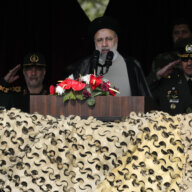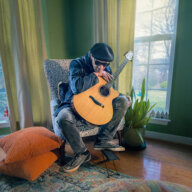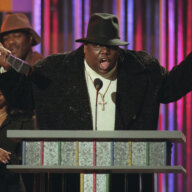 Harpist Elizabeth Hainen is part of the Philadelphia Orchestra’s Commissions Micro-Festival.
Harpist Elizabeth Hainen is part of the Philadelphia Orchestra’s Commissions Micro-Festival.
Credit: Amanda Stevenson Photography
Classical composer Tan Dun has often drawn on the folk tunes and traditions of his native China. His new piece, “Nu-Shu: The Secret Songs of Women,” is inspired by elements that are both close to home and utterly mysterious for Tan. Nu-Shu is an ancient written language used in secret by women in the composer’s home province of Hunan, inked in the folds of pleated fans or embroidered into clothing. The only known gender-based written language in the world, Nu-Shu is in danger of disappearing, so Tan took a video crew to film six elderly women entrusted with its preservation.
Those videos are one piece of Tan’s new multi-media piece, which will have its U.S. premiere this weekend as part of the Philadelphia Orchestra’s Commissions Micro-Festival, which features new solo works for three of the orchestra’s principal musicians. “Nu-Shu” was written for harpist Elizabeth Hainen, whose collaborations with Tan, best known for his soundtrack for “Crouching Tiger, Hidden Dragon,” stretch back nearly a decade.
“It’s been wonderful to explore and learn not only about the particular women in the videos, but to find out the legacy of their language and how it effected women in feudal China,” Hainen says. “They were basically oppressed women, and this language was a wonderful way for them to find their own voice. The strength and motivation of these women a thousand years ago to express themselves and to communicate with each other despite their living conditions is powerful.”
Hainen describes “Nu-Shu” as a “dramatic symphony,” which employs the full range of the harp’s palette and even calls on her to imitate traditional Chinese instruments. “The sounds and ideas that Tan portrays in his music lend themselves to the harp,” she explains. “Tan’s writing is incredibly impressionistic and very organic; there are a lot of colors and effects that can be made on the harp and he really knows how to exploit them.”
The lineup
In addition to Tan’s piece, the festival includes Behzad Ranjbaran’s Persian-inspired “Flute Concerto” for principal flutist Jeffrey Khaner and “Pictures From the Floating World,” written by David Ludwig for bassoonist Daniel Matsukawa and inspired by Japanese wood block prints. The program will be completed by Rachmaninoff’s “Symphonic Dances.”
Harpist Hainen, who recently returned from premiering “Nu-Shu” in Shanghai, is enthusiastic about the Orchestra’s micro-festival and its promotion of new music. “I feel as classical musicians it’s really important to play living music by living composers. Especially for an instrument such as the harp, which hasn’t been showcased as much as the piano or violin — we need composers to write for it and give it more attention and more visibility.”
Philadelphia Orchestra Commissions Micro-Festival
Oct. 31-Nov. 2
Verizon Hall at the Kimmel Center
300 S. Broad St.
215-893-1999
www.philorch.org



























